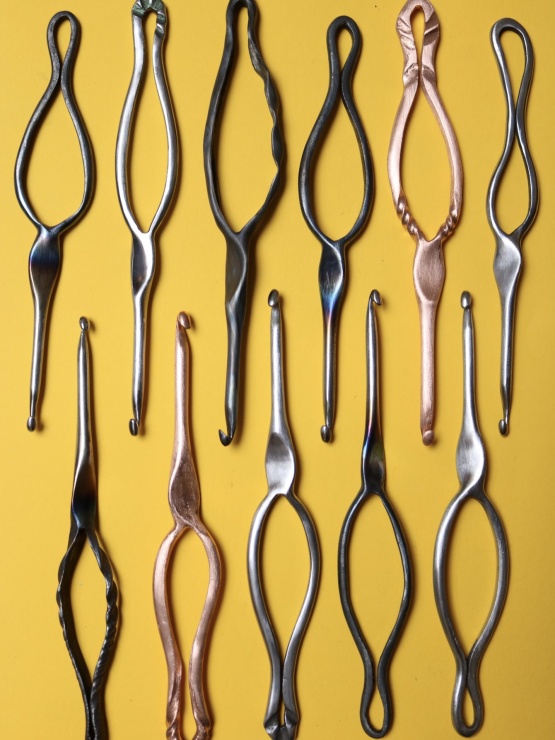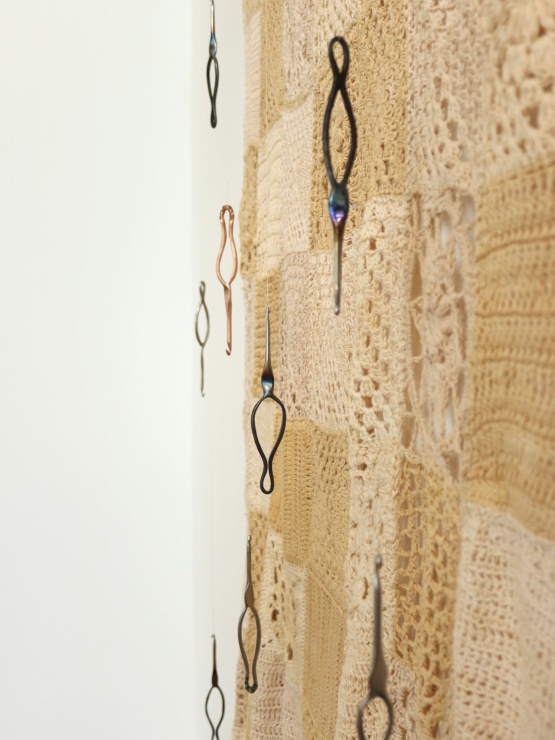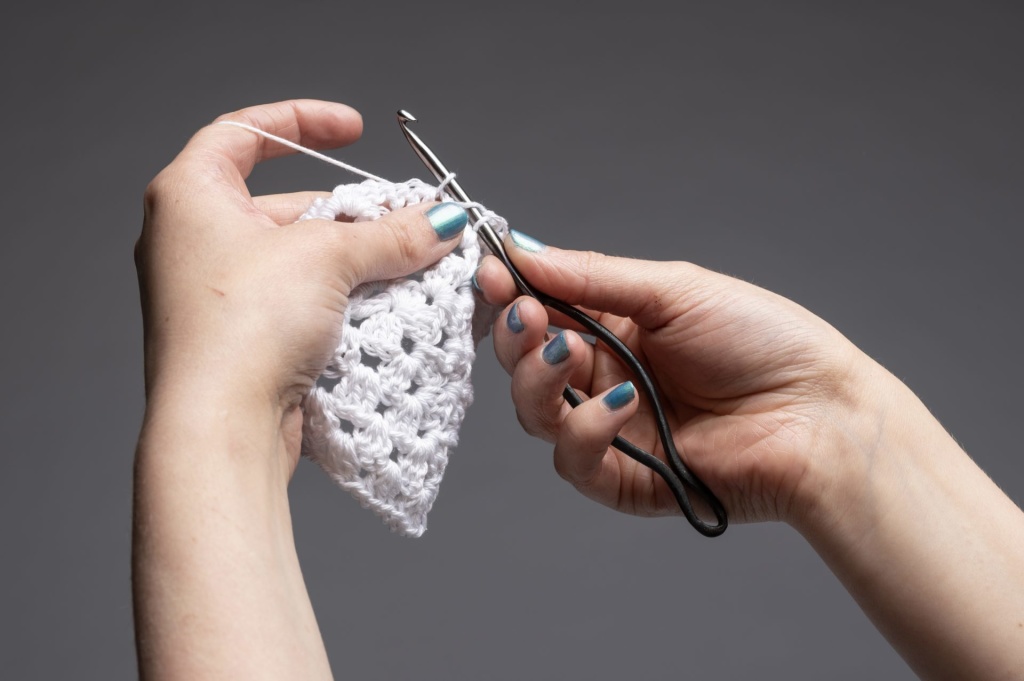Craft, especially crochet and blacksmithing, resonates with my experiences of being queer and neurodivergent through its position on the edge of the art world. I aim to connect people who feel different, to use tactility as a source of comfort and familiarity, and to create functional objects that can question expectations about neurodivergence and queerness. Tactility has been an ongoing theme in my work. Being autistic, sensory experiences are very important to me, and since finding out I am autistic the tactile nature of my work has made more sense. It has also become more intentional, as I now consider the sensory aspects of my work more thoroughly, making pieces that users can create relationships with through touch.
I primarily work in forged steel, but I love introducing other materials to my work. When forging, my design process is only loosely planned, and I find a natural flow in which the movement of the steel influences the final outcome. In this project, the cold, smooth steel contrasts with the soft textiles, so that both materials question each other and highlight their qualities. They are even more inviting to touch when put together, and I love that unexpected materials like textiles can confuse expectations and associations. This desire for questioning and confusion has been strongly influenced by research into queer and neuroqueer theory.
My crochet hooks began as tactile, comfortable tools to create connections in yarn, and have developed into tools connecting the craft, queer and neurodivergent communities who have helped me find joy and endless possibilities in difference. The familiarity and accessibility of crochet means it is a useful tool for connection with others. To test the functionality and experience of using the crochet hooks, and to show craft’s ability to connect people, I asked crocheters to make the squares that form the blanket, which I have dyed with rust. I want the work to evoke a visual network of connections, and to provoke consideration of those who have made the work. I want viewers with disparate experiences to my own to reconsider what they think they know about neurodivergence, and for viewers who can relate to experiences of difference to feel understood.
Dissertation – Queering the Cultural Myth of the Blacksmith


